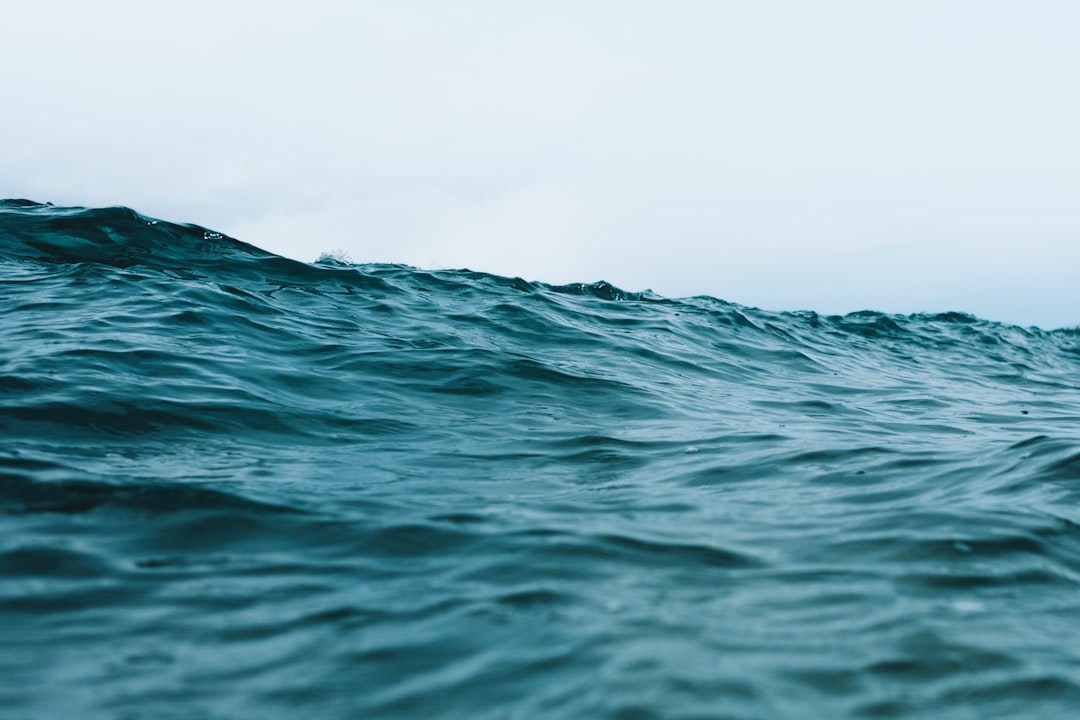Support our educational content for free when you purchase through links on our site. Learn more
[2023] 20 Creative Ways to Conserve the Ocean and Protect Marine Life
Save the Ocean Today and for Future Generations!
Introduction:
We all have a responsibility to protect our oceans and marine life. The ocean provides us with food, oxygen, and even helps regulate the climate. But increasing pollution, overfishing, and climate change are threatening its delicate ecosystem. In this article, we'll share 20 creative and effective methods to conserve the ocean and protect marine life. From reducing plastic waste to supporting sustainable seafood choices, there are actions we can take individually and collectively to make a difference. Join us on this journey to a healthier ocean!
Table of Contents:
- Demand Plastic-Free Alternatives
- Reduce Carbon Footprint
- Choose Ocean-Friendly Products
- Opt for Sustainable Seafood
- Raise Your Voice and Vote
- Engage with Lawmakers and Representatives
- Explore and Appreciate the Oceans
- Leave No Trace
- Share Your Ocean Heroics
- Support Oceana
- Frequently Asked Questions
- What are the benefits of conserving the ocean?
- How can we stop ocean warming?
- Why is it important to conserve the ocean?
- How can I make a difference?
- Useful Links
1. Demand Plastic-Free Alternatives
Plastic pollution poses a significant threat to the ocean and marine life. By reducing our plastic consumption and advocating for plastic-free alternatives, we can make a positive impact. Here are some actions you can take:
– Bring Your Own Reusable Bags: Carry your own shopping bags to reduce the need for single-use plastic bags. Keep a foldable tote bag in your purse or backpack for unexpected purchases.
– Skip the Plastic Straws: Say no to plastic straws and choose eco-friendly alternatives like stainless steel, bamboo, or glass straws.
– Use Reusable Water Bottles: Opt for reusable water bottles instead of single-use plastic bottles. Choose stainless steel or BPA-free options for a healthier and more sustainable choice.
– Refuse Single-Use Plastic Utensils: Whenever possible, bring your own cutlery to avoid using disposable plastic utensils. Keep a set of cutlery in your bag or backpack for meals on the go.
2. Reduce Carbon Footprint
Climate change has numerous effects on the ocean, including coral bleaching, rising sea levels, and disrupted marine ecosystems. By reducing our carbon footprint, we can help mitigate these impacts. Here are some steps you can take:
– Opt for Sustainable Transportation: Walk, bike, or use public transportation whenever possible. By reducing your reliance on fossil fuel-based transportation, you can minimize carbon emissions and contribute to a healthier planet.
– Save Energy: Conserve energy in your daily life by turning off lights when not in use, using energy-efficient appliances, and properly insulating your home. By reducing energy consumption, we reduce the demand for fossil fuel-based energy sources.
– Support Renewable Energy: Advocate for renewable energy sources like solar and wind power. If you have the means, consider installing solar panels on your home or contributing to community-based renewable energy projects.
3. Choose Ocean-Friendly Products
Many personal care and household products contain harmful chemicals that can end up in the ocean, affecting marine life. By choosing ocean-friendly alternatives, we can prevent these pollutants from entering our oceans. Here are some tips:
– Use Reef-Safe Sunscreen: Chemicals found in many sunscreens can harm coral reefs. Opt for reef-friendly sunscreens that are free of oxybenzone and octinoxate, two common ingredients known to be harmful to coral.
– Choose Eco-Friendly Cleaning Products: Switch to environmentally friendly cleaning products that don't contain harsh chemicals that can harm marine life. Look for plant-based and biodegradable options.
– Support Sustainable Fashion: Choose clothing made from sustainable materials like organic cotton, hemp, or recycled fibers. Avoid purchasing clothes made from materials that contribute to microplastic pollution, such as polyester.
4. Opt for Sustainable Seafood
Overfishing and destructive fishing practices pose a significant threat to the ocean's biodiversity. By choosing sustainable seafood options, we can support responsible fishing practices and protect marine ecosystems. Here's what you can do:
– Look for MSC-Certified Seafood: The Marine Stewardship Council (MSC) certifies seafood products that come from sustainable fisheries. Look for the MSC label to ensure your seafood choices support healthy oceans.
– Know Your Seafood Guide: Use resources like the Monterey Bay Aquarium's Seafood Watch or the SeaChoice website to learn about sustainable seafood choices in your region. These guides provide information on which fish species are overfished or caught using harmful methods.
– Support Local, Small-Scale Fishermen: Buying seafood directly from local, small-scale fishermen helps promote sustainable fishing practices and supports local economies.
5. Raise Your Voice and Vote
Advocacy and political action play a crucial role in conserving the ocean. By raising our voices and casting informed votes, we can ensure that ocean conservation remains a priority for our leaders. Here's how you can get involved:
– Stay Informed: Educate yourself about ocean conservation issues and the policies that impact the ocean. Follow environmental organizations and marine conservation groups to stay up to date.
– Contact Your Representatives: Reach out to your elected officials to express your concerns about ocean conservation. Write letters, make phone calls, or attend local town hall meetings to share your thoughts.
– Sign Petitions: Support online petitions or campaigns that focus on protecting the oceans and marine life. Your signature can help raise awareness and push for policy changes.
6. Engage with Lawmakers and Representatives
Beyond contacting your representatives, you can take further action by actively engaging with lawmakers and representatives to promote ocean conservation policy. Here are some strategies you can employ:
– Attend Public Hearings: Attend public hearings or town hall meetings where ocean conservation policies are discussed. Share your insights and concerns during the public comment period.
– Join Advocacy Groups: Join local or national advocacy groups focused on protecting the ocean. These groups often organize campaigns, lobby for policy changes, and provide educational resources.
– Volunteer: Offer your time and expertise to organizations dedicated to ocean conservation. Your skills can be valuable in research, organizing events, or even spearheading campaigns.
7. Explore and Appreciate the Oceans
Building a deeper connection with the ocean can foster a greater sense of responsibility and appreciation. Get out and explore the beauty of the seas while learning about marine ecosystems. Here's how you can start:
– Snorkeling and Scuba Diving: Discover the wonders of the underwater world through snorkeling or scuba diving. Immerse yourself in the beauty of coral reefs, marine life, and vibrant ecosystems.
– Visit Aquariums and Marine Centers: Aquariums and marine centers provide educational experiences that raise awareness about ocean conservation. Take part in guided tours, attend workshops, and learn from marine experts.
– Support Citizen Science Initiatives: Contribute to ongoing research and conservation efforts by participating in citizen science initiatives. Projects like reef monitoring or marine species identification rely on public participation.
8. Leave No Trace
Whether you're visiting the beach or boating in the open waters, it's essential to practice responsible outdoor ethics. Leaving no trace means enjoying nature while minimizing your impact on marine ecosystems. Consider these tips:
– Properly Dispose of Trash: Always bring a bag to collect your trash and dispose of it properly. Even if you don't see a trash can nearby, take your waste with you until you find a suitable disposal location.
– Avoid Littering: Prevent any debris, including cigarette butts or snack wrappers, from ending up in the ocean. Dispose of waste in designated containers or recycle whenever possible.
– Respect Marine Life: When snorkeling, diving, or encountering marine life, maintain a safe distance and avoid touching or harassing marine creatures. Observe from a distance and leave them undisturbed.
9. Share Your Ocean Heroics
Inspire others to join the movement and contribute to ocean conservation by sharing your experiences and knowledge. Use your voice and influence to empower those around you. Here are some ways to spark change:
– Social Media Advocacy: Share informative posts, articles, and infographics about ocean conservation on your social media platforms. Encourage friends and followers to take action and make informed choices.
– Organize Beach Cleanups: Rally your friends, family, or colleagues to organize beach cleanups. These events not only raise awareness but also have a direct impact on reducing ocean pollution.
– Educate Others: Share your knowledge and experiences about the ocean with others. Teach children, host workshops, or give presentations at schools and community centers.
10. Support Oceana
Oceana is one of the world's largest organizations dedicated to advocating for ocean conservation. By supporting their initiatives and campaigns, you can help fund research, promote policy changes, and protect marine habitats. Consider donating or getting involved to support their mission.
Frequently Asked Questions
Q: What are the benefits of conserving the ocean?
A: Conserving the ocean has numerous benefits, including preserving biodiversity, sustaining fish populations, and maintaining a healthy climate. The ocean provides us with food, oxygen, and livelihoods, making its conservation vital for our own well-being.
Q: How can we stop ocean warming?
A: Preventing ocean warming requires reducing greenhouse gas emissions. By addressing climate change on a global scale, including transitioning to renewable energy sources, we can mitigate ocean warming and prevent further damage to marine ecosystems.
Q: Why is it important to conserve the ocean?
A: Conserving the ocean is crucial because it supports biodiversity, regulates climate, provides oxygen, absorbs carbon dioxide, and offers valuable resources. Protecting the ocean ensures a sustainable future for both marine life and human populations.
Q: How can I make a difference?
A: You can make a difference by taking individual actions like reducing plastic waste and making sustainable choices. By participating in advocacy efforts, engaging with policymakers, and supporting organizations dedicated to ocean conservation, you can contribute to broader change.
Useful Links
- Gone Greenish™
- Oceana
- Marine Stewardship Council
- Monterey Bay Aquarium's Seafood Watch
- SeaChoice
- The Ocean Cleanup
- The Plastic Pollution Coalition
References:
- National Geographic: Protecting Our Oceans
- WWF: Threats to Our Oceans
- United Nations: Clean Seas Campaign
- Greenpeace: Oceans
- Environmental Defense Fund: Sustainable Seafood
- Surfrider Foundation: Rise Above Plastics
- The Nature Conservancy: Ocean Conservation
- NOAA Fisheries: Marine Protected Areas
- Yale Climate Connections: The Ocean and Climate Change



